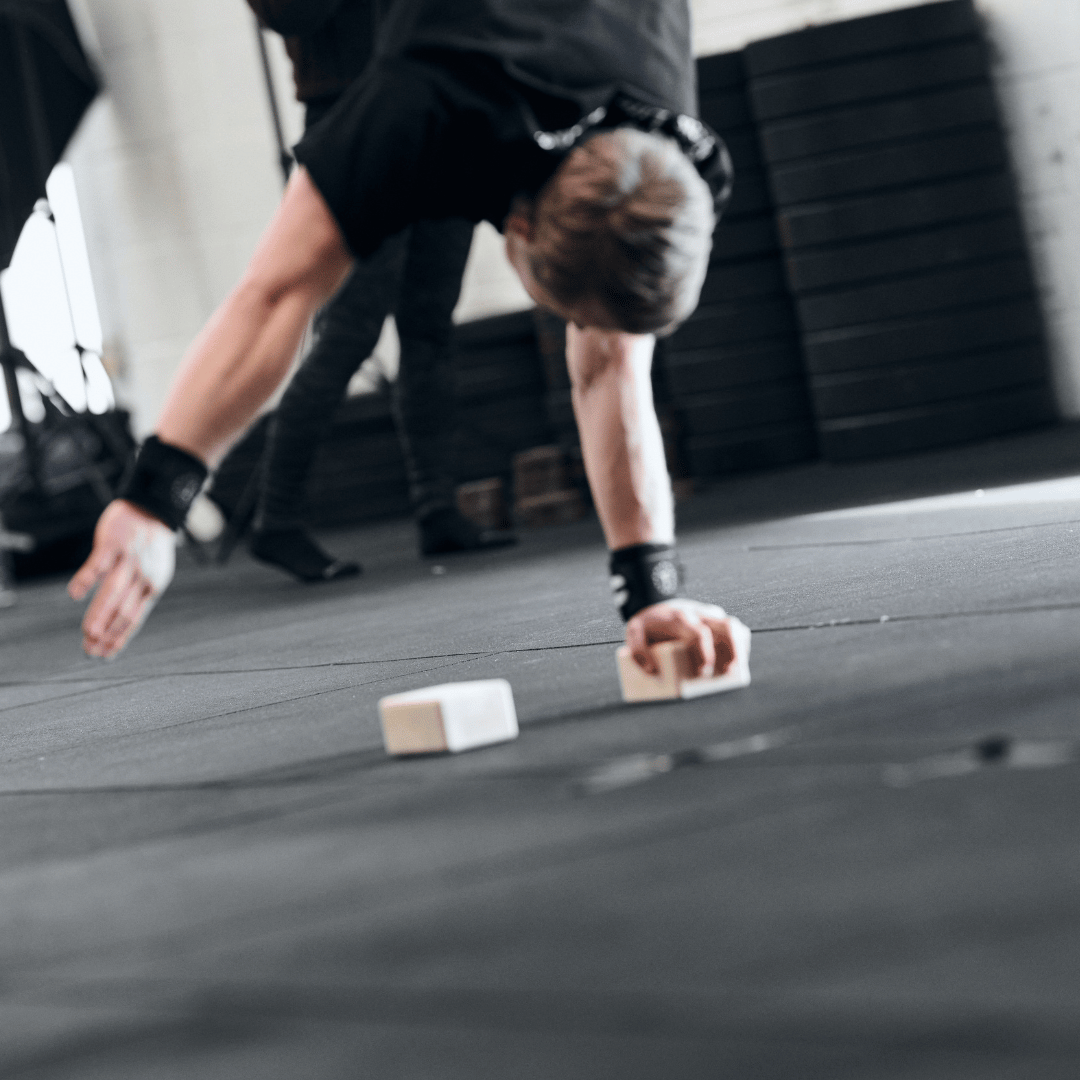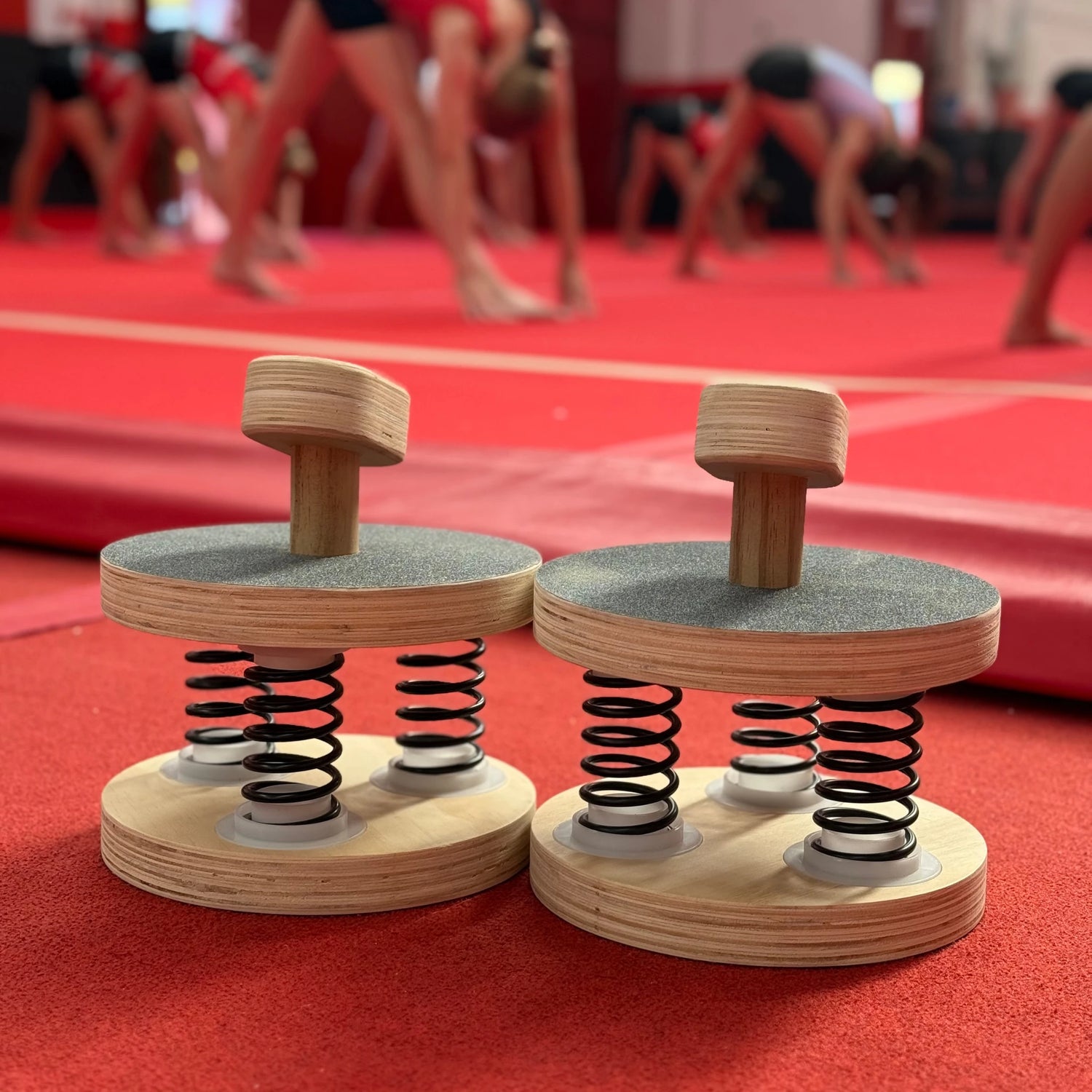
The Art of Hand Balancing - Why You Should Handstand Today
|
|
Time to read 6 min

Check out our exciting new balance product launches. Developed and tested by...
|
|
Time to read 6 min
Hand balancing, particularly handstands, has grown in popularity over recent years. Once considered a niche skill practised by gymnasts and circus performers, it has now become a mainstream fitness goal.
This surge is driven by its impressive physical benefits, aesthetic appeal, and the satisfaction of mastering a complex skill. Here's why you should consider integrating handstands into your fitness regimen today.
If you are wondering if hand balancing is for you or what exactly is involved, then this article is for you. Below we will cover what it is and how you can get started on your hand balancing journey.
Hand balancing is the art of supporting your own body in an inverted vertical position using the hands.
This practice encompasses various skills and techniques, from simple handstands to advanced moves like one-arm handstands or stalder press. It requires strength, balance, and a high degree of body awareness and control.
Starting with hand balancing can be a daunting prospect, but it really doesn’t need to be.
The key to success lies in understanding that it's a gradual process. Beginners should focus on basic exercises to build the necessary strength and balance and accepting that it is a skill that is built across many months and even years will help to measure your expectations as a beginner.
Initially, you might use a wall for support, practising facing away from it to develop your shoulder and core strength. The most important thing is to remain patient and consistent with your practice.
Effective hand balancing training sessions incorporate various elements, such as strength training, balance drills, and mobility exercises.
Each session should begin with a handstand-specific warm-up to prepare your body. This warm up might include wrist mobilisation, shoulder openers, and core activation exercises. These steps are crucial in preventing injuries and enhancing performance.
Dive into some of our other articles on hand balancing for beginners and various other blogs that will help to guide your progression.
Hand balancing offers numerous physical benefits. They significantly improve upper body strength, particularly in the shoulders, arms, wrists and core.
The core muscles play a crucial role in maintaining stability during a handstand. Moreover, hand balancing enhances body alignment and coordination, leading to better overall posture and movement efficiency.
The upper body and core engagement required for handstands translates into improved endurance and muscular endurance.
Regular hand balancing helps in building a stronger, more resilient upper body. This is especially beneficial for athletes and fitness enthusiasts looking to enhance their performance in other disciplines.
Inverting the body during a handstand promotes increased blood flow to the brain, which can help improve cognitive function and mental clarity.
This position also aids in enhancing circulation throughout the body, potentially benefiting cardiovascular health.
This makes hand balancing an incredibly positive activity for your overall health and wellbeing.
When it comes to hand balancing we like to think we've got your equipment needs covered. Below, we've listed three of our most popular hand balancing items for you to take a look at.
Handstand blocks, acro handstand canes and a safe balance base are just some of the items that will accelerate your hand balancing journey.
The rise of social media and online platforms has made it easier than ever to learn hand balancing techniques.
Numerous online programs offer structured training plans, video tutorials, and community support. These programs cater to various skill levels, providing a convenient and effective way to improve your handstand technique from the comfort of your home.
We have partnered with some unbelievable hand balancing athletes who offer online coaching and training programmes. Get in touch with us via email or social media and we can make some recommendations for you.
Successful training for hand balancing requires attention to several key areas. Below we have listed the 5 things you can focus on to ensure you develop the best possible skills and mentality for your hand balancing journey.
Good technique is paramount in hand balancing. Proper form reduces the risk of injury and enhances performance. Focus on aligning your body correctly, engaging your core, and maintaining shoulder stability.
Mobility exercises are crucial in preparing your body for the demands of hand balancing. Shoulder and wrist mobility, in particular, are essential for achieving a comfortable and effective handstand position.
Building strength and endurance in the upper body and core is vital. Incorporate exercises like push-ups, planks, and shoulder presses into your training routine to develop the necessary muscle strength.
Regular skill sessions focused on handstands help improve your balance and technique. Practise different variations, such as the straddle jump or arm handstand, to challenge yourself and progress.
The mental aspect of handstands is as important as the physical. Developing a positive thought process and maintaining focus are key to mastering this skill. Visualising success, setting realistic goals, and celebrating small achievements can boost confidence and motivation.
You will hear the terms ‘hand balancing’ and ‘journey’ used quite commonly together. Anyone who has dedicated their time and efforts to learning the art of hand balancing will tell you, it can take some commitment and the ability to overcome physical and mental set backs in order to achieve your goals.
Hand balancing is a long-term endeavour. Progress may be slow, and setbacks are common. However, the rewards are worth the effort. The sense of accomplishment from holding a freestanding handstand or performing a new move is unparalleled.
Well done if you’ve made it this far in educating yourself on the art of hand balancing! To recap and send you on your way with the key takeaways from our article, here are the 8 key guidelines to achieve good results when hand balancing.
An advanced move that builds immense upper body strength. Start with partial range push-ups and gradually increase the depth.
1. Consistent Practice: Regular practice is essential. Dedicate time to handstand training sessions several times a week. Hand balancing takes time, so go easy on yourself and enjoy the process.
2. Proper Warmup: Always start with a handstand-specific warmup to prepare your body.
3. Focus on Technique: Prioritise good technique to ensure safety and effectiveness.
4. Use Equipment Wisely: Incorporate handstand blocks, canes, and non-slip mats to enhance your hand balancing practice.
5. Seek Guidance: Utilise online programs and seek advice from experienced practitioners.
6. Be Patient: Progress takes time. Celebrate small victories and stay motivated.
7. The Right Time: When to Start Handstand Training
8. Get Started: The best time to start hand balancing is now!
Whether you're a fitness enthusiast looking for a new challenge or a beginner seeking to improve your physical capabilities, handstands offer a unique and rewarding path. The physical benefits, combined with the mental satisfaction of mastering a complex skill, make hand balancing a worthwhile pursuit.
Hand balancing, and particularly handstands, offer an interesting way to enhance your fitness routine. The combination of strength, balance, and endurance work provides comprehensive physical benefits.
With the availability of online programs and the support of a growing community, there's no better time to start your handstand journey. Embrace the challenge, enjoy the process, and experience the transformative power of handstands.
If you did want to learn hand balancing with an online coach, please reach out to us via our social media channels or email and we would love to put you in touch with some of our athletes who deliver remarkable online hand balance training.



